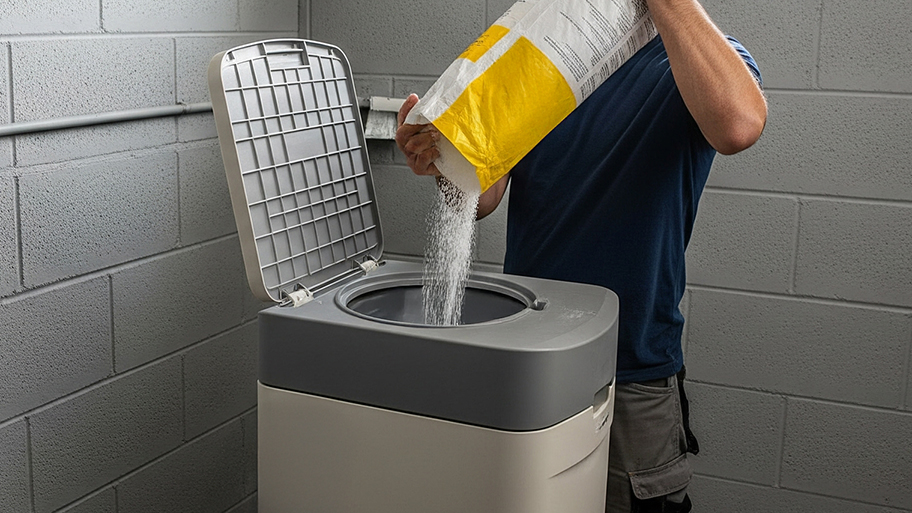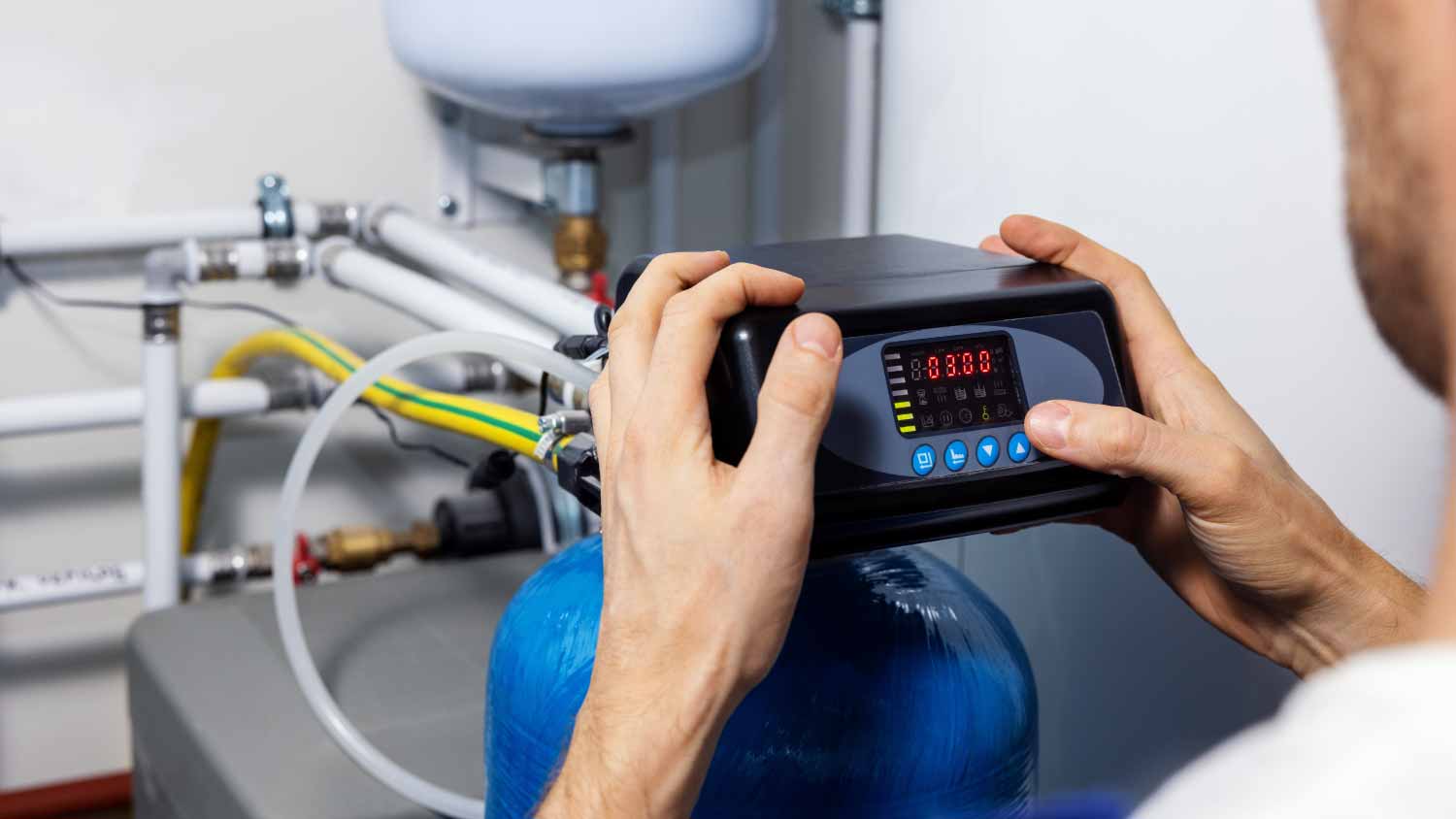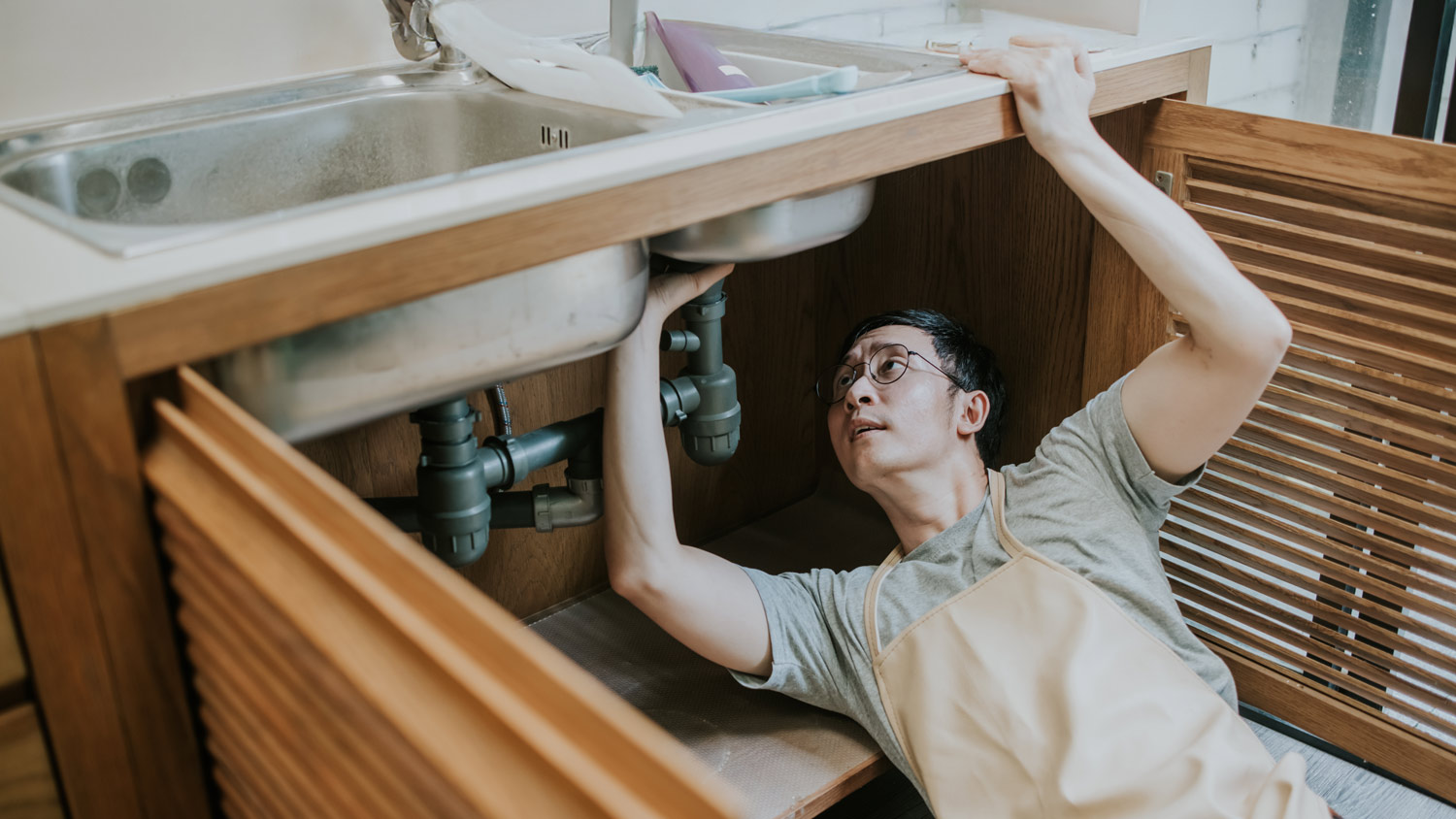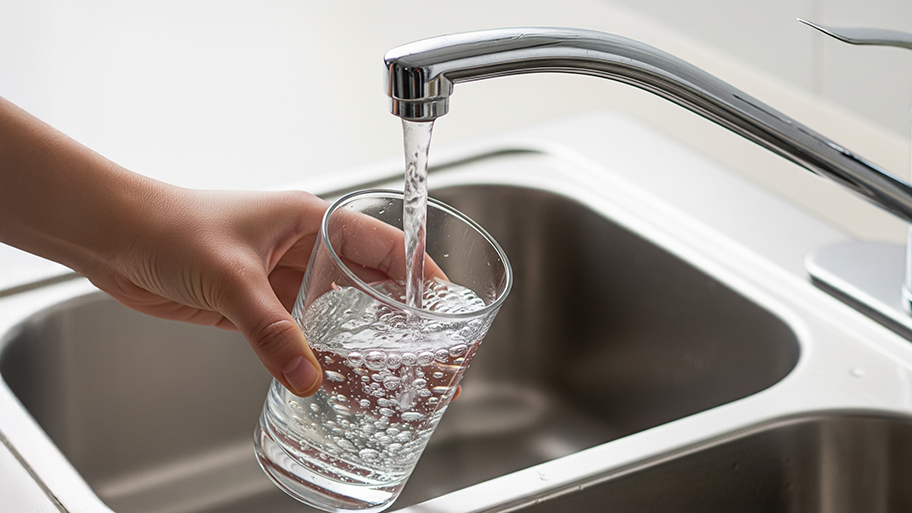
How much a water softener costs depends on your home’s size, and the system’s type and capacity. Our expert guide explores all the price factors.
Fresh filters = fresh water


Whether you’re filling a pot with water for pasta or grabbing a glass of H2O to quench your thirst, you probably prefer that your water is filtered and clean before consuming it. A whole-house water filter can help remove pollutants, but only if it’s not past its prime. Learning how often to change a whole-house water filter ensures your family is sipping fresh, pollutant-free water all the time.
When it comes to how often to change a whole-house water filter, it depends on the type of water filter your home has. Some filters require frequent changes every few months, while others can go as long as a decade before you need to replace the filter.
Here are the average life spans of some common types of whole-house water filters:
| Filter Type | Replacement Frequency |
|---|---|
| Pre-sediment filter | 3–6 months |
| Post-filter | 9–12 months |
| UV filter | Every year |
| Salt-free water softener filter | Every 6 years |
| Filtration tank | 5–10 years |
You need to replace a pre-sediment filter frequently, every three to six months, because it’s responsible for capturing larger pollutants like dirt and debris that range from around 1 to 100 microns in size. While some filters are optional and add extra layers of filtration, the pre-sediment filter is always included in any home water filtration system.
The post-filter, or the sub-micro post-filter, is available to add to your water filtration system for more thorough filtration. This type of water filter needs to be replaced about every nine to 12 months. It is responsible for capturing extremely small particles, such as bacteria or other particles under 1 micron, that weren’t caught by the pre-sediment filter.
Rather than collecting particulate matter in a mesh-like filter, a UV filter uses ultraviolet light to kill microorganisms in the water. The UV bulb in a whole-house water filtration system will need to be changed once every 12 months.
You can change a salt-free water softener filter, good for homes with hard water, every six years. Hard water is water with high amounts of minerals like magnesium and calcium, and 85% of homes in the U.S. have hard water.
Excess minerals in your water can cause mineral buildup in the plumbing, which can put a strain on your plumbing pipes and appliances. You may wonder, “Will a whole-house water filter remove scale?” It won’t remove the existing scale, but it will prevent additional buildup.
A salt-free water softener changes the chemical makeup of the minerals to prevent them from building up, but only when the filter is in good condition.
In addition to filters, a whole-house water filtration system includes a filtration tank that should be replaced about every five to 10 years. The tank will remove contaminants like heavy metals, chlorine, and other chemicals.
These tanks are rated by capacity, ranging from around 300,000 gallons for a small household to 1 million gallons for a larger household or homes that have a greater water demand. A higher capacity means that the filtration tank will last longer.
There are some general timelines for how often to change a whole-house water filter, but the actual amount of time between filter replacements can vary based on several different factors.
The more water your household uses, the more the filters have to work to clean that water. That can shorten the life span of the filter and the filtration tank. For example, a filtration tank rated for 1,000,000 gallons should last 10 years. However, if you have a large household and use a lot of water, you could hit that 1-million-gallon limit sooner.
A larger household will have a higher water demand, which increases usage and wears out the filters faster compared to a small household of one to two people.
For households that rely on well water, the water can come with a higher amount of sediment, minerals, and other particles. This can lead the water filters to have to capture more particles and wear out faster compared to homes connected to a municipal water source.
Homes with poorer water quality or hard water will put more wear and tear on filters, as they need to collect more contaminants from the water with every use. The more contaminants the filters have to capture, the faster they will need to be replaced.
Regularly maintaining your water filtration system and your plumbing keeps all parts in good, working condition. When everything is operating as intended, it puts less strain on the filters and the filtration system, which can help extend the life span of your filters and other parts of this system.

Maybe you forgot to mark in the calendar when to change the filter, or perhaps you moved into a new home and don’t know the last time the filters were replaced. Either way, if you’re not sure how often to change the whole-house water filter or don’t know the last time it was changed, keep an eye (and nose) out for these signs of an outdated filter:
Sediment is visible in your water.
Your water tastes or smells different than usual.
You notice low water pressure in faucets or appliances around your home.
Your water is leaving behind white residue on dishes, revealing there are higher total dissolved solids (TDS) in the water.
Your skin and hair feel drier, which can happen when the filters aren’t removing chlorine and other chemicals from the water.
There are many different types of water filtration technologies. When one technology is not enough, ask a local water filtration pro how you can combine technologies to reach your water treatment goals.
You don’t want to wait too long between filter replacements, or you could risk some contaminants getting into your water. However, there are ways to get the most out of every filter while still enjoying fresh, clean H2O.
Some ways to give your water filter’s life span a boost include:
Conserve water to reduce the amount of water the filter has to clean.
Keep up with regular maintenance for the entire filtration system to reduce strain on the filter.
Perform regular inspections once per month so that you can change any clogged or cracked filters as soon as possible.
Don’t push the life span too long or you risk damaging your entire filtration system.
When installing whole-house water filters, use high-quality filters that are compatible with your water filtration system.
A whole-house water filtration system often includes a one-year warranty to cover any defects in the filtration system and its parts. Some manufacturers may also offer the option to purchase extended warranties of three to five years. Warranties will vary by manufacturer, so check closely if you want some peace of mind from a strong warranty for your water filtration system.
You should replace water filters rather than try to clean or repair them and reuse them. But as for the entire water filtration system, eventually it will reach the end of its life span and require replacement. If you notice issues like discoloration of your water, foul smelling water, or a strange taste, hire a local water softener installation company to determine whether it’s time to repair the filtration system or replace it.
From average costs to expert advice, get all the answers you need to get your job done.

How much a water softener costs depends on your home’s size, and the system’s type and capacity. Our expert guide explores all the price factors.

Your cost to install an under-sink water filter will depend on the type and size of system you choose and whether you need professional installation.

On average, a reverse osmosis water filter costs around $2,200, but there are a few variables that impact the total price. Learn about them in this guide.

Are refrigerator water filters good at keeping germs out of fridge water? Explore the pros and cons of refrigerator filters and whether you should get one.

From activated carbon to reverse osmosis, there are many types of water filters on the market today. Here are 10 of the most popular options.

Learn the features, advantages, and disadvantages of a salt versus salt-free water softener to see which is the better solution for hard water in your home.